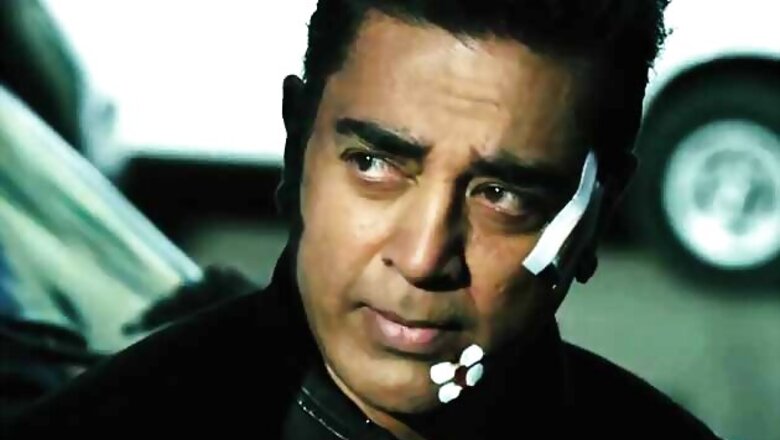
views
New Delhi: Much has been said about 'Vishwaroop' even before the film hit the theatres. While early reviews have reiterated what Kamal Haasan has been saying for almost two weeks now - that the film is not anti-Islam in any way - the film in reality is actually very cleverly secular.
Stereotypes galore, Haasan's film raises important points and is perhaps, if at all, anti-terrorism. In fact, to accuse Haasan of propagating anything against any religion is a bit immature to be honest. The man is a public figure and is very well aware of the reach he has.
Each and every move of his is watched, aped and copied by millions of people. He is considered God by many. As a citizen of this country, he is responsible for his actions. Even though he is considered a maverick filmmaker, he perhaps will think twice before saying something too radical through his films.
Like many others, when I entered the theatre to watch 'Vishwaroop', I was curious to find out even mild traces of anti-Islamic dialogues, or scenes. But instead what I found was a multicultural film that caters to everyone and makes the world one big happy family.
Here's why:
There are spoilers. If you haven't seen the film, come back to this write-up later.
1: The main protagonist of the film is someone called Vishwanath who actually is an Indian (and a very patriotic one at that) Muslim called Wasim Ahmad Kashmiri. Being a RAW agent and a Muslim it is perfect alibi for him to fool the terrorists and become a part of their group, only to turn them to the US.
2: Just before the climax of the film, there is this very poignant scene where right before detonating the bomb and blowing up the entire New York city in the name of Jihad, Rahul Bose (Omar, AL Qaida terrorist) his aide Salim (Jaideep Ahlawat) offer namaz minutes before taking the flight out of New York, meanwhile at the same time, the suicide bomber offers his prayers and outside amongst the cops who are waiting to break in, Wasim steps out to offer his prayers. Each one prays to Allah, but each one has a different prayer.
3: The film's narrative heavily depends on flashback and establishes how Wasim gets to know Omar through close quarters. The film's narrative is shifted to 2002, when NATO troupes attacked and ravaged Afghanistan. In one such scene, Omar's family is killed when American troupes air raid his village. A dreaded, stone cold terrorist himself, Omar breaks down in front of Wasim and asks why Allah would kill his family even though he was providing service to Allah (Jihad is considered a holy war). The script smartly infuses a humane angle for a dreaded terrorist. He may be killing people in the name of jihad, but also sheds few tears when his family is killed by the 'enemy'.
4: Haasan's film also makes a clear demarcation between good people and bad people. They can belong to any religion, any race but he points out that every community has its share of bad people. Case in point: The team that is appointed to thaw Al Qaida's plan to bomb NYC comprises of a mixed group. It has a white, an Indian Muslim(Haasan), a Hindu (Shekhar Kapur in an irrelevant role) and a woman (Andrea Jeremiah). See what he has done there? Meanwhile, the terror group comprising of Afghans, appoint a African-American to finally pull the trigger and cause mayhem in the city. The African is of course brain washed and is ready to sacrifice his life chanting 'Allah Hu Akbar'.
5: The film also attempts to cater to all religion. So the Indian contingent comprises of a Hindu, a Muslim, a Christian and even has a Sikh in the last few frames who comes from the Indian Embassy to bail them out when they are arrested by the FBI. Kamal's cheating wife, a Hindu, eventually comes around when she discovers the truth about her husband and how he is not the effeminate Kathak dancer she loathes and even apologizes for her behaviour. She may be hating her husband all her life but suddenly in a span of 24 hours, she happily accepts him and spends her life with a Muslim man.
Hassan's film is full of cliches (which demands another article altogether) but the film actually just propagates peace. The story is not new. Post 9/11 several films- both in Hollywood and Bollywood - have made terrorism as its backdrop and have even tried in their own way to reiterate the fact that all Muslims aren't terrorists. And 'Vishwaroop' is no different. Even though the film propagates peace and treats terrorism as the common enemy, it is, at the end of the day, an entertainer and nothing else.




















Comments
0 comment